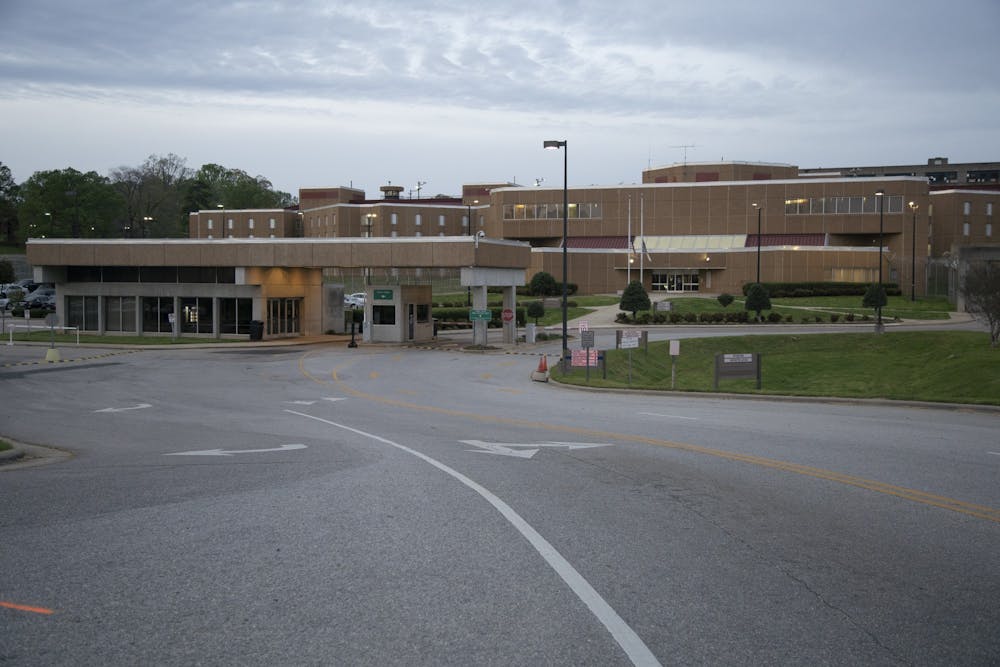John Bull, prisons communications officer for the N.C. Department of Public Safety, said there’s no data recording how many vaccinations have been performed at each facility.
'A history of distrust'
Todd Ishee, N.C. commissioner of prisons said in a press release he urges everyone to get vaccinated.
“This is our best shot to protect the health and safety of our colleagues and their families as well as the men and women in our custody," Ishee said. "Science has thrown us a lifeline. Everyone should grab ahold.”
Leah Kang, a staff attorney with the North Carolina ACLU, said there is a long history of distrust between incarcerated people and the state. She said the trauma incarcerated people have faced over the last 11 months has created a lot of fear.
Kang said since the vaccine is voluntary for both staff and inmates, the state must work to rebuild trust within its incarcerated populations.
“There needs to be not just more availability and accessibility of the vaccine but genuine, effective efforts made by the state to make sure that incarcerated people can trust this process and know this vaccine is safe and they should take it,” Kang said.
Kang said she thinks the rollout of vaccines in prisons is slower than it should be when compared to the distribution at other congregate living facilities, like nursing homes, adult care homes and mental health group homes.
“COVID-19 has created conditions in North Carolina state prisons that are extremely dangerous for both people who are incarcerated and the staff who work there,” Kang said. “It is just as dangerous if not more dangerous to be in prisons as it is to be in something like a nursing home.”
Slowing the spread
Those incarcerated are uniquely vulnerable to COVID-19 given their inability to social distance, their lack of access to quality health care and poor ventilation inside prisons, Kang said. They are also more likely to have underlying health conditions that worsen symptoms when contracted.
Kang is working on a lawsuit, filed by several N.C. civil rights groups, arguing the state’s failure to protect prisoners from the pandemic is unconstitutional. According to the lawsuit, inmates said they lack consistent access to masks and sanitation supplies, and that solitary confinement has been used for inmates who need to quarantine.
To get the day's news and headlines in your inbox each morning, sign up for our email newsletters.
“I think that if the conditions that incarcerated people are facing in our state prisons were the conditions for any other group of people in our state, we wouldn't stand for it,” Kang said. “And we certainly wouldn't be standing for it for going on a year.”
Bull, the NCDPS communications officer, said in an email the department does not comment on pending legislation.
The lawsuit was filed in April, and in June, Wake County Superior Court Judge Vinston Rozier Jr. ruled that conditions in prisons were likely unconstitutional and that the groups were likely to succeed in their case.
Kang said the suit has resulted in improved testing procedures, but the state has yet to fully address the main thing needed to protect prisoners: significantly reducing the inmate population.
Ben Finholt, director of the Just Sentencing Project at North Carolina Prisoner Legal Services, said reducing the prison population would mean releasing prisoners on parole or to the Extended Limits of Confinement Program, which allows prisoners to finish their sentence at home under the supervision of a community corrections officer.
“It's been terrifying for all of the people who are incarcerated and for their loved ones,” Finholt said. “If we are not sentencing someone to die in prison, I see no reason why that person should not be released from prison to serve the rest of their time outside of the prison walls. That person should not be under threat of death.”
There were 34,348 inmates in NC prisons in March 2020, according to NCDPS data. As of January 2021, that number was down to 29,480. But Kang and Holt agreed in addition to getting everyone within the prison system vaccinated, more inmates need to be released.
“The vaccine alone cannot do all the work,” Kang said.
@kaylaguilliams
@DTHCityState | city@dailytarheel.com




